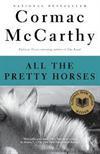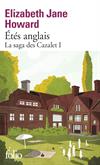
Die Päpstin.
1 journaler for this copy...
Das neunte Jahrhundert ist eines der finstersten des Mittelalters. Blutrünstig fallen Christen und Normannen übereinander her. Die Sarazenen aus Afrika versuchen Rom zu erobern. Viel Blut fließt. Verrat, Mord und Tod sind an der Tagesordnung. In dieser Zeit haben Frauen so gut wie keine Rechte. Sie sind Leibeigentum des Mannes und müssen ihm gehorchen. Johanna erlebt als Kind, wie ihr Vater, der ein ärmlicher Dorfpriester ist, ihre geliebte Mutter Gudrun tyrannisiert und schlägt. Gudrun ist Normannin und wurde bei der gewalttätigen Bekehrung dieses Volkes zum Christentum von ihrem zukünftigen Mann mit nach Ingelheim in Franken gebracht. Heimlich erzählt Gudrun ihrer Tochter die Geschichten von den Göttern der Heiden. Ihr Mann, der fanatische Christenpriester, darf das nie erfahren. Sie beschwört ihre Tochter, nachdem sie von ihm wieder einmal übel zugerichtet wurde: "Du mußt aus deinen Fehlern lernen ... damit dir nicht das gleiche passiert. Wenn du heiratest, gibst du alles auf -- nicht nur deinen Körper, auch deinen Stolz, deine Unabhängigkeit, sogar dein Leben. Verstehst du? Verstehst du? ... Falls du jemals glücklich sein möchtest, dann merk dir meine Worte Tochter: Gib dich niemals einem Mann hin."
Diesen dringenden Rat aus der Not vergisst Johanna zeit ihres Lebens nicht. Johanna ist außergewöhnlich intelligent, und durch einen Glücksumstand erhält sie als Mädchen Untericht. Als sich nach wenigen Jahren plötzlich alle Möglichkeiten verschließen, als Frau weiter zu studieren, beschließt sie, ihr Leben als Mann fortzusetzen. In Männerkleidung, mit kurz geschorenem Haar, messerscharfem Verstand, umfassendem Wissen, Warmherzigkeit und Intuition gelingt es ihr nach zahlreichen Stationen ihres Lebens und einigen gefährlichen Situationen, in denen ihre wahre Identität fast aufgedeckt wird, den Papststuhl zu besteigen. Vom 12. Lebensjahr bis zu ihrem Tod verbindet sie eine starke und tiefe Liebe zu dem Markgrafen Gerold. Sie empfinden sich als Zwillingsseelen. Einige Male retten sie sich gegenseitig das Leben, aber die Umstände verhindern oft ihr Zusammensein, manchmal über Jahre hinweg, die jedoch ihre ungewöhnliche starke Verbundenheit nie brüchig werden lassen. Johanna stirbt, nachdem sie sich als Päpstin besonders für die Armen und die Frauen eingesetzt hat, einen unerwarteten und spektakulären Tod, der laut Historie authentisch sein soll. Dennoch triumphiert Johanna, denn es ist nicht die Hand des Feindes, die sie niederstreckt.
Während die katholische Kirche die Existenz einer Päpstin Johanna, die den Papststuhl höchstwahrscheinlich von 953-955 innehatte, leugnet, sprechen geschichtliche Forschungen auf diesem Gebiet bestechend dafür, dass es eine Päpstin gegeben haben muss. Sehr aufschlussreich dazu ist das Nachwort der Autorin, indem sie Für und Wider der Existenz einer Päpstin abwägt.
One of the most controversial women of history is brought to brilliant life in Donn Woolfolk Cross's tale of Pope Joan, a girl whose origins should have kept her in squalid domesticity. Instead, through her intelligence, indomitability and courage, she ascended to the throne of Rome as Pope John Anglicus.
The time is 814, the place is Ingelheim, a Frankland village. It is the harshest winter in living memory when Joan is born to an English father and a Saxon mother. Her father is a canon, filled with holy zeal and capable of unconscionable cruelty. His piety does not extend to his family members, especially the females. His wife, Gudrun, is a young beauty to whom he was attracted beyond his will--and he hates her for showing him his weakness. Gudrun teaches Joan about her gods, and is repeatedly punished for it by the canon. Joan grows to young womanhood with the combined knowledge of the warlike Saxon gods and the teachings of the Church as her heritage. Both realities inform her life forever.
When her brother John, not a scholarly type, is sent away to school, Joan, who was supposed to be the one sent to school, runs away and joins him in Dorstadt, at Villaris, the home of Gerold, who is central to Joan's story. She falls in love with Gerold and their lives interesect repeatedly even through her Papacy. She is looked upon by all who know that she is a woman as a "lusus naturae," a freak of nature. "She was... male in intellect, female in body, she fit in nowhere; it was as if she belonged to a third amorphous sex." Cross makes the case over and over again that the status of women in the Dark Ages was little better than cattle. They were judged inferior in every way, and necessary evils in the bargain.
After John is killed in a Viking attack, Joan sees her opportunity to escape the fate of all her gender. She cuts her hair, dons her dead brother's clothes and goes into the world as a young boy. Gerold is away from Villaris at the time of the attack and comes home to find his home in ruins, his family killed and Joan among the missing. After the attack, Joan goes to a Benedictine monastery, is accepted as a young man of great learning, and eventually makes her way to Rome.
The author is at pains to tell the reader in an Epilogue that she has written the story as fiction because it is impossible to document Joan's accesion to the Papacy. The Catholic Church has done everything possible to deny this embarrassment. Whether or not one believes in Joan as Pope, this is a compelling story, filled with all kinds of lore: the brutishness of the Dark Ages, Vatican intrigue, politics and favoritism and most of all, the place of women in the Church and in the world. --
Diesen dringenden Rat aus der Not vergisst Johanna zeit ihres Lebens nicht. Johanna ist außergewöhnlich intelligent, und durch einen Glücksumstand erhält sie als Mädchen Untericht. Als sich nach wenigen Jahren plötzlich alle Möglichkeiten verschließen, als Frau weiter zu studieren, beschließt sie, ihr Leben als Mann fortzusetzen. In Männerkleidung, mit kurz geschorenem Haar, messerscharfem Verstand, umfassendem Wissen, Warmherzigkeit und Intuition gelingt es ihr nach zahlreichen Stationen ihres Lebens und einigen gefährlichen Situationen, in denen ihre wahre Identität fast aufgedeckt wird, den Papststuhl zu besteigen. Vom 12. Lebensjahr bis zu ihrem Tod verbindet sie eine starke und tiefe Liebe zu dem Markgrafen Gerold. Sie empfinden sich als Zwillingsseelen. Einige Male retten sie sich gegenseitig das Leben, aber die Umstände verhindern oft ihr Zusammensein, manchmal über Jahre hinweg, die jedoch ihre ungewöhnliche starke Verbundenheit nie brüchig werden lassen. Johanna stirbt, nachdem sie sich als Päpstin besonders für die Armen und die Frauen eingesetzt hat, einen unerwarteten und spektakulären Tod, der laut Historie authentisch sein soll. Dennoch triumphiert Johanna, denn es ist nicht die Hand des Feindes, die sie niederstreckt.
Während die katholische Kirche die Existenz einer Päpstin Johanna, die den Papststuhl höchstwahrscheinlich von 953-955 innehatte, leugnet, sprechen geschichtliche Forschungen auf diesem Gebiet bestechend dafür, dass es eine Päpstin gegeben haben muss. Sehr aufschlussreich dazu ist das Nachwort der Autorin, indem sie Für und Wider der Existenz einer Päpstin abwägt.
One of the most controversial women of history is brought to brilliant life in Donn Woolfolk Cross's tale of Pope Joan, a girl whose origins should have kept her in squalid domesticity. Instead, through her intelligence, indomitability and courage, she ascended to the throne of Rome as Pope John Anglicus.
The time is 814, the place is Ingelheim, a Frankland village. It is the harshest winter in living memory when Joan is born to an English father and a Saxon mother. Her father is a canon, filled with holy zeal and capable of unconscionable cruelty. His piety does not extend to his family members, especially the females. His wife, Gudrun, is a young beauty to whom he was attracted beyond his will--and he hates her for showing him his weakness. Gudrun teaches Joan about her gods, and is repeatedly punished for it by the canon. Joan grows to young womanhood with the combined knowledge of the warlike Saxon gods and the teachings of the Church as her heritage. Both realities inform her life forever.
When her brother John, not a scholarly type, is sent away to school, Joan, who was supposed to be the one sent to school, runs away and joins him in Dorstadt, at Villaris, the home of Gerold, who is central to Joan's story. She falls in love with Gerold and their lives interesect repeatedly even through her Papacy. She is looked upon by all who know that she is a woman as a "lusus naturae," a freak of nature. "She was... male in intellect, female in body, she fit in nowhere; it was as if she belonged to a third amorphous sex." Cross makes the case over and over again that the status of women in the Dark Ages was little better than cattle. They were judged inferior in every way, and necessary evils in the bargain.
After John is killed in a Viking attack, Joan sees her opportunity to escape the fate of all her gender. She cuts her hair, dons her dead brother's clothes and goes into the world as a young boy. Gerold is away from Villaris at the time of the attack and comes home to find his home in ruins, his family killed and Joan among the missing. After the attack, Joan goes to a Benedictine monastery, is accepted as a young man of great learning, and eventually makes her way to Rome.
The author is at pains to tell the reader in an Epilogue that she has written the story as fiction because it is impossible to document Joan's accesion to the Papacy. The Catholic Church has done everything possible to deny this embarrassment. Whether or not one believes in Joan as Pope, this is a compelling story, filled with all kinds of lore: the brutishness of the Dark Ages, Vatican intrigue, politics and favoritism and most of all, the place of women in the Church and in the world. --
Journal Entry 2 by 4K-KARLSRUHE at LOC Hauptbahnhof Karlsruhe - geschlossen - in Karlsruhe, Baden-Württemberg Germany on Monday, January 25, 2010
Released 14 yrs ago (1/25/2010 UTC) at LOC Hauptbahnhof Karlsruhe - geschlossen - in Karlsruhe, Baden-Württemberg Germany
WILD RELEASE NOTES:
WILD RELEASE NOTES:
Dieses Buch findest du im Bücherregal im Loungebereich des Restaurants LOC im Karlsruher Hauptbahnhof.
Gemütliche Atmosphäre und bequemes Polstermöbel für ausgiebige Leseproben sind vorhanden.
Dieses Buch findest du im Bücherregal im Loungebereich des Restaurants LOC im Karlsruher Hauptbahnhof.
Gemütliche Atmosphäre und bequemes Polstermöbel für ausgiebige Leseproben sind vorhanden.
 This Book is Currently in the Wild!
This Book is Currently in the Wild!







